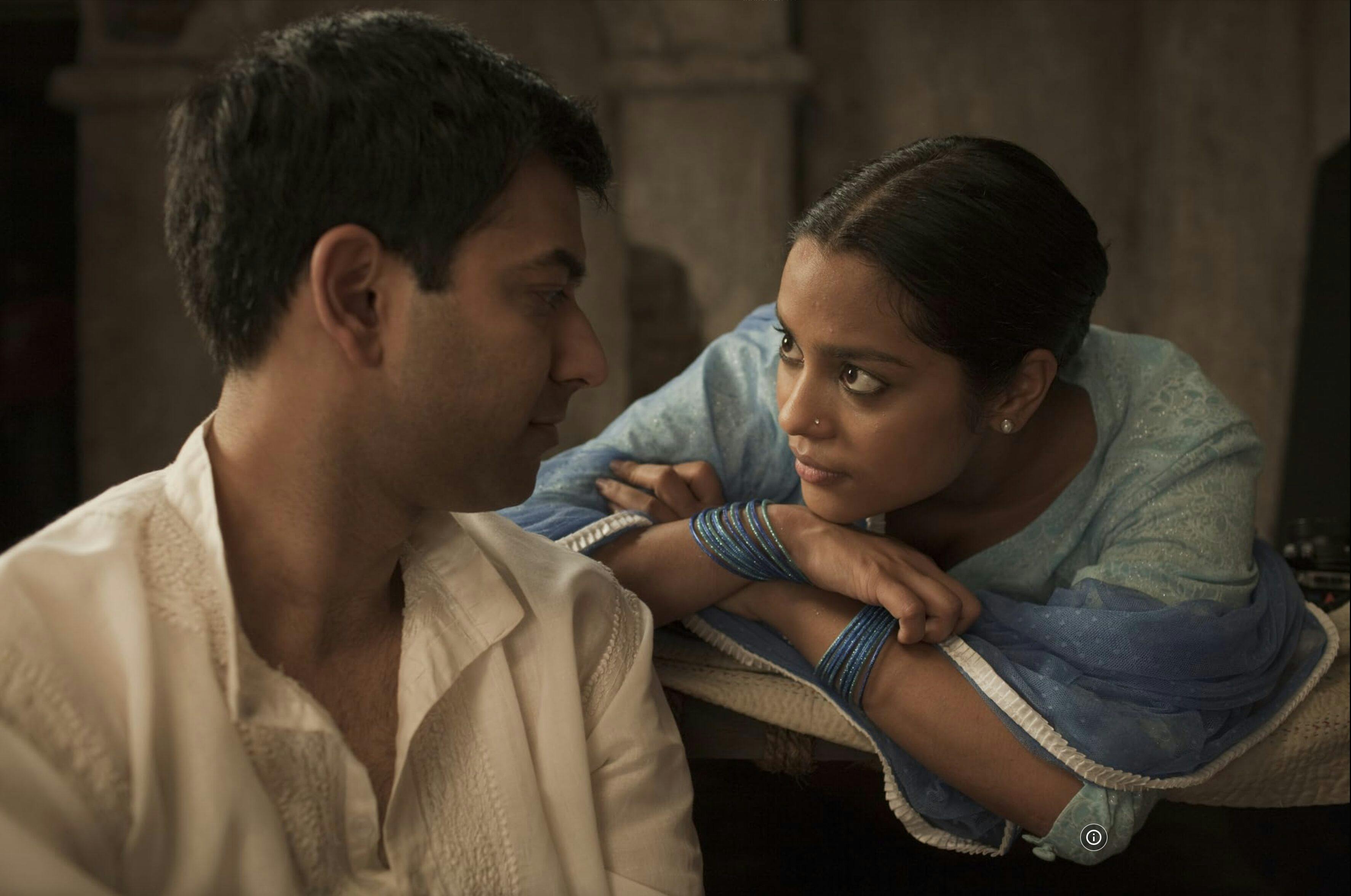 From Deepa Mehta’s Midnight’s Children (2012)
From Deepa Mehta’s Midnight’s Children (2012)
If you set out to write a novel that would be as hard as possible to make a movie of, you might produce something that looks a bit like Salman Rushdie’s Midnight’s Children. Never mind the plot that unfolds over three decades in three countries, covering historical events that affect hundreds of millions of people. Even just the fact that some of the novel’s most important events occur inside the main character’s head, rather than outside, would deter most screenwriters.
Midnight’s Children also gave Rushdie his first taste of controversy when India’s then-Prime Minister, Indira Gandhi, sued him and his British publisher Jonathan Cape for defamation in 1984. Rushdie settled the case by agreeing to delete one sentence that especially offended Gandhi; mere months later, she was assassinated by members of her bodyguard.
Five years later, Rushdie had to go into hiding for nearly a decade following a death sentence issued against him by Iran’s Ayatollah Khomeini, who had condemned Rushdie’s 1988 novel, The Satanic Verses, as blasphemous. The most recent attempt on Rushdie’s life, in 2022, was motivated by this controversy. (Neither Khomeini nor Rushdie’s recent attacker had read The Satanic Verses.)
Midnight’s Children takes your breath away: ideas burst from every page, from the silliest of puns to the most profound of symbols. The novel is frequently classified as magical realism, a mode in which absurd or impossible events co-exist with everyday reality, with no boundary between them or explanation for what they are doing there. Throughout the novel, increasingly zany and delightful characters and motifs proliferate, until you start to suspect that Rushdie is too caught up in his own cleverness — but it is just at those moments that he ties these elements together with a new plot twist, showing that even what seems the most random flight of fancy contributes to the central idea.
Published in 1981, Midnight’s Children won the Booker Prize, one of the world’s most prestigious literary prizes. In 1993 it was declared the “Booker of Bookers,” the best novel to have won the Booker in its first twenty-five years; it repeated this feat in 2008 for the prize’s fortieth anniversary. It has sold millions of copies worldwide, and routinely appears on lists of the greatest novels of all time.
The plot hinges on that most hackneyed and implausible of events, children swapped at birth. They are born at the stroke of midnight, 15 August 1947, the moment India achieved its independence from the British Empire. They become each other’s mirror opposites. Each lives the life intended for the other. They are both endowed with magical powers. The narrator, Salim Sinai, wants to use these powers constructively, to build something magnificent. His nemesis, Shiva, understands only brutal self-interest and revels in violence for its own sake.
The opening pages explain why these paired children are more than a plot device. One is the son of a British landowner who appears just long enough to father an illegitimate child upon an Indian woman who dies in childbirth, a suggestive analogue for British rule in India. Each comprises several of the multitudinous influences that make up modern India, and each is tied to the fate of India and Pakistan, which also came into being at the stroke of midnight. Both the children and the nations are born in moments of optimistic aspiration, but are betrayed by fear, self-interest, and the drive to faction.
Salman Rushdie wrote the screenplay for Deepa Mehta’s 2012 film of Midnight’s Children, an adaptation that took him two years. He sold the film rights to Mehta for $1; such is the trust between this author and this film-maker: she would work with no other screenplay, and he would entrust his novel to no other director.
It is remarkable that this novel could be adapted to the screen at all; that the film so successfully conveys the novel’s central ideas is more remarkable still. It succeeds by ignoring the novel’s many subplots and focusing exclusively on the central character, Salim Sinai, for whom Rushdie himself provides the voice-over. In this way Rushdie manages to distill a 600-page novel into a coherent film.
Inevitably much is lost. The chief casualties are the novel’s numerous minor characters, who are the source of so much of the delight to be found in its pages; in particular, the novel’s female characters, by turns hilarious, indomitable, and terrifying, come and go too quickly in the film to be much more than ciphers. Another striking difference is that for such a loud novel, so exuberant in its inventiveness, the film has a calmer, almost meditative tone. Gone is the zany, punning humour, as is the almost overwhelming inventiveness. Instead, the film communicates both the author’s grief over the betrayal of India’s and Pakistan’s hopeful beginnings, and confidence in the ability of people to find hope amidst ruins.
In the film’s closing minutes, the voice-over states that the protagonists’ lives, like the creation of India and Pakistan, were acts of love; whether or not that is true of the characters and nations, it is undoubtedly true of Deepa Mehta’s adaptation of one of the world’s best-loved novels.
See it in the newspaper